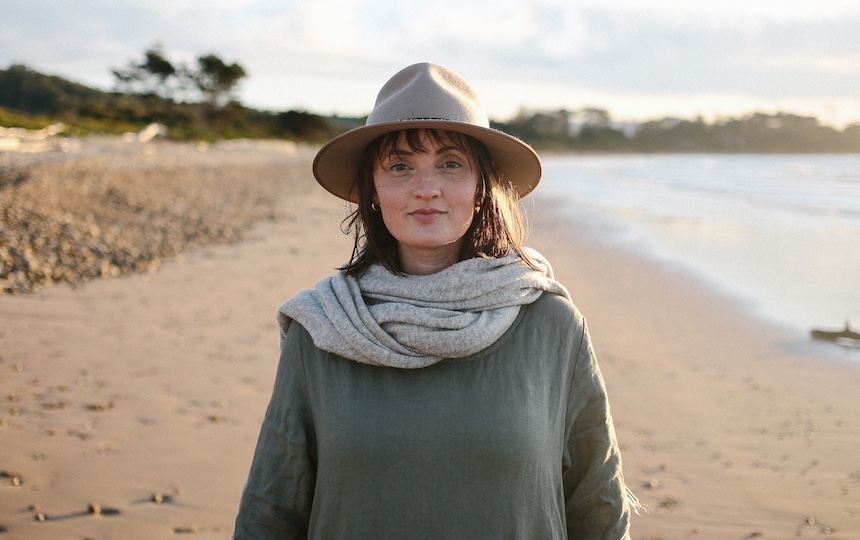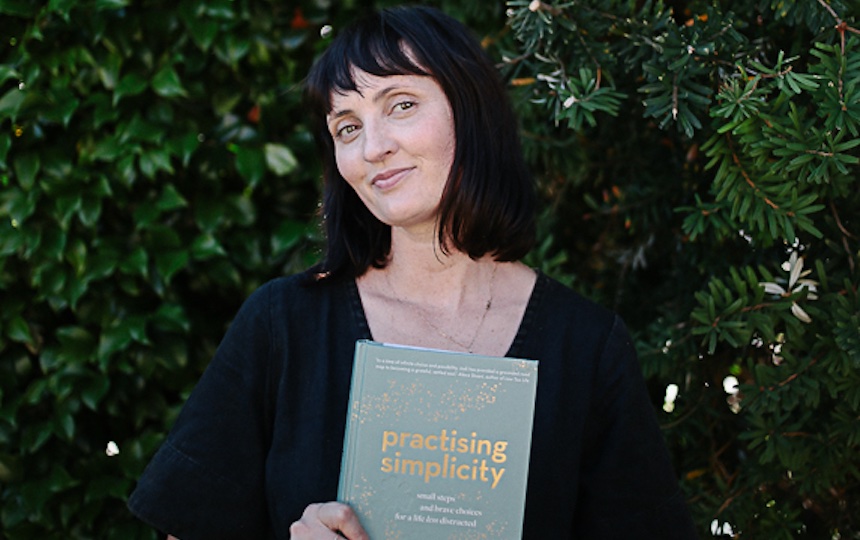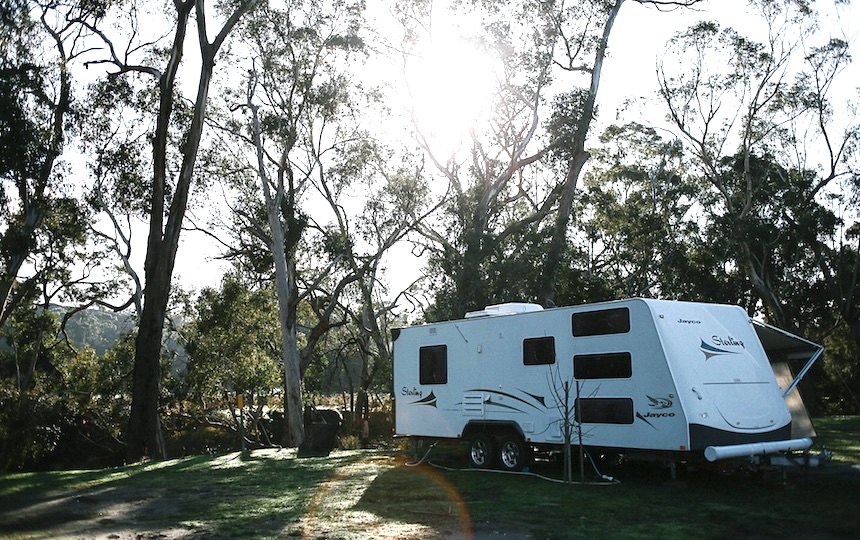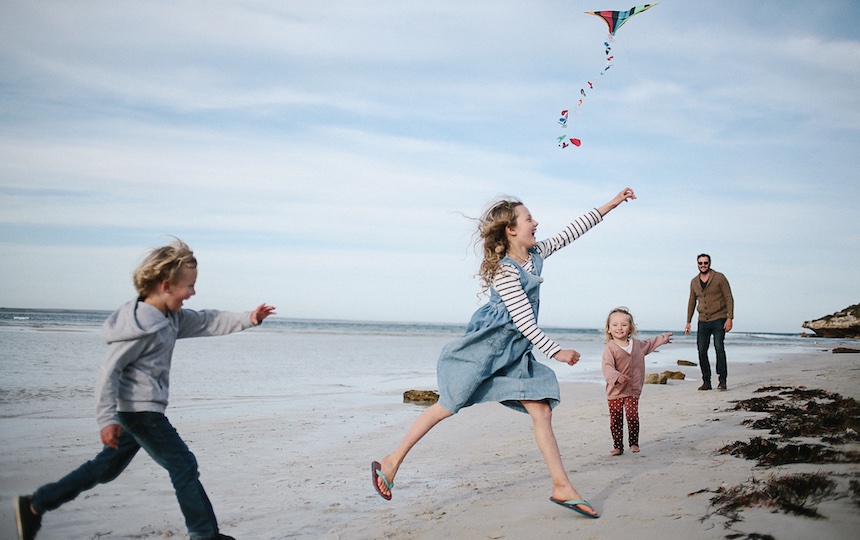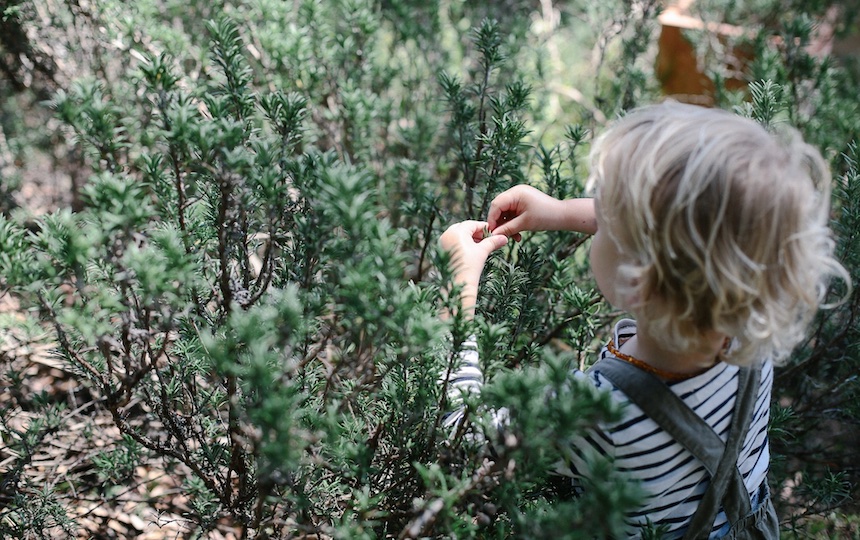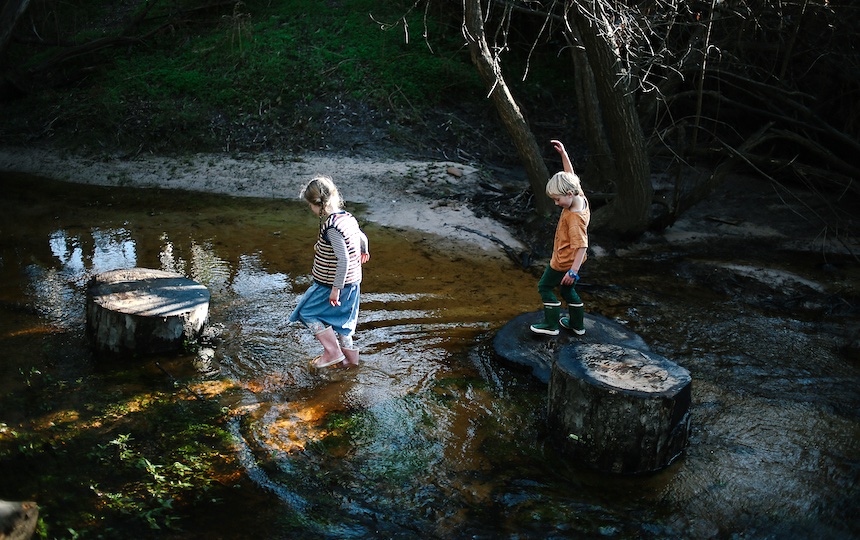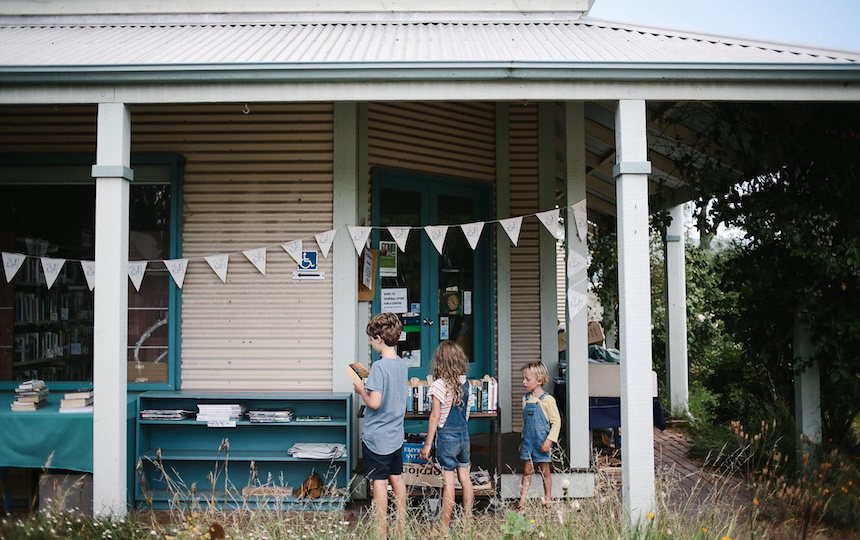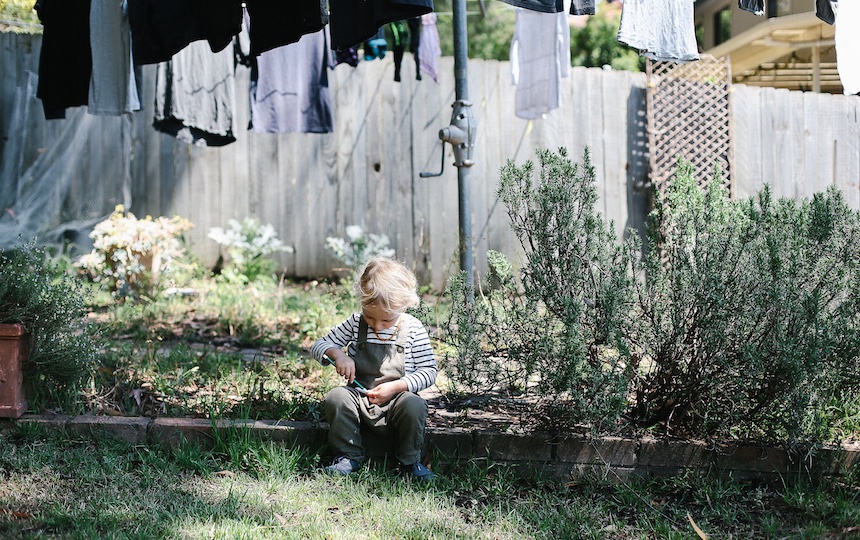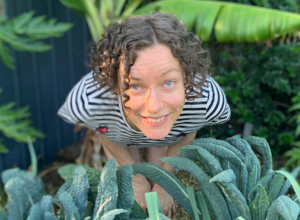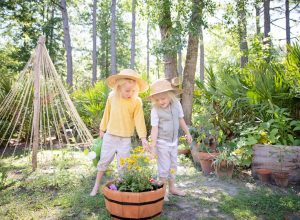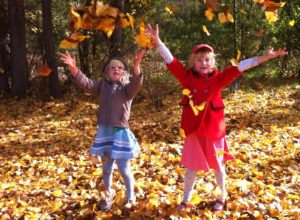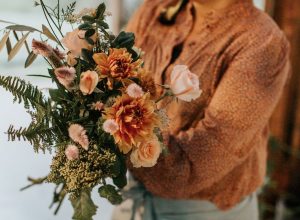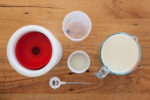Writer, photographer and author of ‘Practising Simplicity’, Jodi Wilson reveals how she practises “frugal abundance” and shares the three ways we can all introduce “simplicity” into our own lives.
Living with less, simplifying our lives and slowing down are all concepts near and dear to the hearts of many Pipsters. Living sustainably and self-sufficiently can be a way to show our care for Mother Earth, as we face the difficult task ahead of safeguarding the planet for future generations.
For writer, photographer, yoga teacher and mother of four, Jodi Wilson, these concepts became her lived experience in 2018, after she and her partner Daniel packed up their home, sold 80% of their belongings and bundled their four kids into a caravan for a two-and-a-half year road trip around Australia.
The experience prompted some soul searching, chiefly, Jodi realised that aside from the essentials and each other, there is really very little that humans need to not just survive, but thrive.
“Packing your life into a caravan will force you to think about what you actually need,” says Jodi. “About the idea of frugal abundance, which is all about working less to live simply instead of working to buy things we don’t need.”
“I was continually fascinated by the fact that we were so content in a tiny home with only the essentials… times six, of course!”
In her book, ‘Practising Simplicity: Small steps and brave choices for a life less distracted’ (Murdoch Books, 2021), which Jodi penned while the family were travelling, writing during small snatches of time on the road, Jodi shines a light on the best things in life that don’t cost money and how you can incorporate them into your lifestyle, whatever your circumstances.
Jodi and her family have put aside their nomadic tendencies for now and now call Tasmania home, where Jodi is busy working on her second book (due out early 2023) and her blog, Practising Simplicity.
Today, we chat with Jodi about the lessons she learnt when she chose to rid herself of superfluous possessions, how it taught her to be a more conscious consumer and embrace tiny living, and why adopting a “frugal” mindset can be better for ourselves and the planet.
Jodi also shares with us the three ways we can all start to introduce “simplicity” into our own lives.
Firstly, tell us about how you came to write your book. What inspired you to put pen to paper and what was the writing process like?
I knew that the experiences I’d had on the road and the lessons I learnt weren’t necessarily dependent on living and travelling in a caravan.
There was a universality to my experiences; consciously choosing to live with less in a consumerist world, getting grounded by spending time in nature, intentionally choosing to live with less plans and obligations, and enjoying the freedom of spontaneity and breathing space.
That said, when I started writing ‘Practising Simplicity’ I didn’t have any idea what it would become. I had a meeting with Lou Johnson, the then publishing director of Murdoch Books very early on in the writing process (long before I had a book contract) and she encouraged me to ask the question: “What is this?”
The writing process was quite esoteric; it really did ebb and flow and slowly the connecting threads came together. But one thing I asked myself everyday was: “What is this?” It really helped guide me when I felt lost and overwhelmed in the manuscript.
Shedding your clutter and belongings can be an incredibly cathartic experience for some. What lessons did you learn when you decided to rid yourself of many of your possessions?
I learnt that you don’t need a lot to live well. I realise I say this as a white woman with inherent privilege, but I also believe that with my privilege comes responsibility.
On the road, as we slowed down and left behind the distractions of a busy life, I had the time and the space to really think about how we wanted to live. And what became really apparent was that if I have privilege and I have choice I really do have to recognise the responsibility of that.
After two-and-a-half years on the road we opted to live in Tasmania because it offers us a lifestyle that we can afford, one where we really can find a balance between work and play and where we have access to so many beautiful natural environments.
By living with less I became a much more conscious consumer. I think hard before purchasing anything and before I do purchase I ask myself these questions: Do I really need it? Do I really want it? Can I source it second-hand? Who made it?
Why such a passion for small space living? Especially as a mother to four little ones!
My kids were 10, 6, 3 and 11 months when we hit the road in mid-2018 and what I didn’t then know about living in a caravan is that the small floorspace naturally encourages you to go outside for space and light.
We spent so much time outside as a result and it really was a salve for my anxiety and overwhelm. I enjoyed the strict boundaries of a caravan because we had to consider the size, weight and purpose of everything we carried with us and, once again, we learnt that we don’t need a lot to live well.
Our kids are growing up with immediate access to so much and we really wanted to teach them the value of living with less.
In the past you’ve talked about having a “frugal” mindset. Can you tell us more about why this is important?
We live in a productivity-driven, consumerist society so being frugal really is going against the norm. But it’s how our grandparents lived and it’s how many people are now being forced to live because of the rising cost of living.
For us, frugality is a choice that allowed us to travel in the first place (we had saved for a house deposit for seven years but decided on a whim to travel instead).
It’s an environmental choice in that we always opt to buy second-hand before we buy new and it’s also our reality. My husband and I work as freelancers and we’ve got four children – we have no choice but to be frugal in our day-to-day lives!
For us, a really great way to practise simplicity (in regards to consuming) is to ask ourselves how long we had to work for something in order to afford it. This prompts us to weigh up the value of time and money, and it kickstarts a greater awareness of what we choose to buy and, in turn, what we choose to go without.
What are three ways people can start introducing the idea of “simplicity” in their own lives?
1. Start where you are with what you have
Simplicity is a mindset and an attitude, it’s not something to complete or an aesthetic to achieve. It’s about really looking at your life and wondering how you can create some breathing space.
When you’re not busy and constantly distracted, you have more time for thinking and considering how you want to live. Simplicity doesn’t require grand life changes, it’s just a matter of taking small steps every day to live with more awareness and intention.
2. Start saying “No”
I think the mental load of women and mothers has really reached a new level of overwhelm since the pandemic and one way to work through this is to ask yourself: “What’s sustainable for me?”.
We’re not machines; we can’t keep doing all the things. When we consciously live with less plans and obligations, there’s more breathing space, more opportunity for connection and grounding.
3. Get into nature
Countless studies show that being in nature is good for us and it really does alleviate or cure many ails.
Go barefoot on the grass or the sand, meander around your neighbourhood and notice all the little details, sit on your back step of an evening and watch the sky turn dark. In nature there is perspective; all the grand beauty really does quell your small worries.
Throughout the pandemic, many people have recognised that a slower, simpler life is preferable. Do you think this will endure or will the post-pandemic world be one of overconsumption and hedonism?
I think the pandemic has proven to us that life is uncertain. None of us quite know what’s coming next. And as we grapple with this reality I think we’re forced to focus our attention on the choices we make today.
As the writer Annie Dillard says: “How we spend our days is how we spend our lives.” The choices we make today really do matter. And instead of pining for what we don’t have we can look around us and see that our ordinary lives are actually quite remarkable.
News about climate change can cause a lot of people to feel anxious, particularly if you’re a parent. How do you ward off eco anxiety?
With hope and by taking my kids into nature so they learn to love it, so they want to save it. I stay aware of politics because systematic change is so crucial but I also believe that the small choices we make each day matter.
We intentionally chose to buy our first house in a small town where we can walk everywhere so we’re not so reliant on a car and we’ve bought second-hand furniture so we’re using what already exists.
We’re doing what we can and we can only hope the results of the federal election steer us towards a more hopeful political situation, too.

